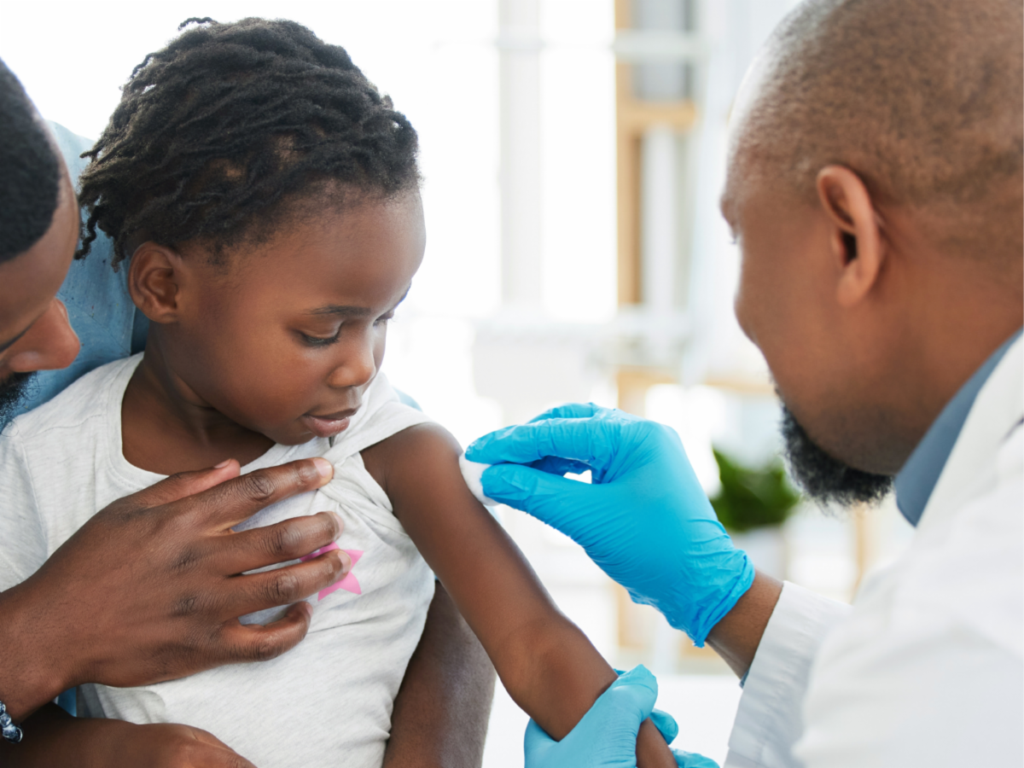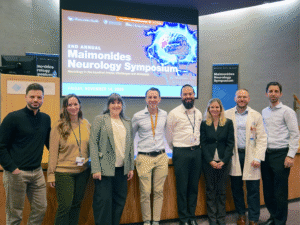Vaccines are one of public health’s greatest achievements. The Centers for Disease Control and Prevention (CDC) reports that childhood vaccinations prevent about 4 million deaths globally each year.
Even so, many parents are reluctant to get their children vaccinated. A 2019 study1 found that about 20% of parents were “hesitant about childhood shots.”
The reasons for vaccine hesitancy are many and varied. But one thing is certain: pediatric care providers play a vital role in getting children vaccinated. With kids returning to school and fall and winter approaching—along with influenza and other infectious diseases that come with the seasons—this is the time to brush up on vaccine messaging.
“Doctors have to be very well-informed,” says Rabia Agha, MD, Director of Pediatric Infectious Disease at Maimonides Children’s Hospital. “Before they meet their patients, physicians need all the statistics, safety data, and guidance in front of them so they can confidently support vaccination of children.”
Effective Vaccine Communication
Medical providers are parents’ most reliable source of healthcare information. So, building rapport and trust with families is essential. Also essential is ongoing dialogue. This includes sharing personal experiences with vaccines and strong vaccine recommendations.
As head of Maimonides’ Pediatric Infectious Disease Division, Dr. Agha can share the experiences of many parents who did not vaccinate their children.
“I usually see patients hospitalized in ICU settings with complications from diseases that are easily preventable when we give vaccines on time,” she says. “Families are so upset at that point. Not vaccinating children can have serious consequences. It is a life and death matter—not a minor thing.”
The American Academy of Pediatrics and CDC also offer the following tips:
- Begin discussions about the importance of vaccinations at prenatal visits.
- Use a presumptive format for vaccine conversations and encourage all office staff to do the same. For example, state “Your child needs several vaccines today,” rather than asking “How do you feel about childhood immunizations?”
- When parents express concerns or have questions, listen with empathy and understanding. If they share news you’re unfamiliar with, stress what you know about vaccines and offer to review their information. If necessary, you can schedule an additional visit.
- If parents refuse vaccines, continue talking about vaccine importance at future appointments. Because they avoid a vaccine once doesn’t guarantee they will do so again. Even if children don’t get vaccines on the recommended schedule or parents prefer spreading them out, kids may still benefit. “Don’t let the perfect be the enemy of the good,” says Joanna Tsopelas, MD, Director of General Pediatrics. “My approach is always to meet people where they are.”
- Emphasize vaccinations’ role in protecting others. While vaccines are recommended for most children, some kids can’t have them. Dr. Tsopelas stresses the critical need to protect these children with parents who don’t want to vaccinate their own kids. Even if their child doesn’t become severely ill after contracting a disease like measles or chicken pox, they could potentially infect immunodeficient children, she tells them. These children may require hospitalization and can have serious consequences from infections. “I find there’s always an incentive for families to get fully vaccinated if somebody at home is at increased risk for a bad outcome from an infectious disease like flu or COVID,” says Dr. Tsopelas.
Childhood Vaccine Safety: Evidence and Oversight
Worries about the safety of vaccines keep many parents from vaccinating their children. Pediatric providers can help put parents’ minds at ease by sharing key safety details:
- Vaccines undergo rigorous testing before they’re offered to the public. Surveillance systems, such as the Vaccine Adverse Event Reporting System (VAERS) and the Vaccine Safety Datalink (VSD), monitor safety after vaccines are on the market.
- Childhood vaccination schedules are based on extensive research that affirms safety and effectiveness.
- Current vaccines use only safe ingredients that help make vaccines more effective.
Vaccine Myths and Misinformation
Myths and misinformation contribute greatly to vaccine hesitancy and avoidance.
“It’s hard with the internet, because there’s no filter to say what is and isn’t true,” says Dr. Tsopelas.
One of the biggest myths: Many diseases vaccines prevent no longer pose a threat.
“The reality is vaccines have been so effective, they’ve caused people to forget what contagious diseases look like,” says Dr. Agha. “And when there is no memory, you feel it’s not a danger or a threat.”
Current and past measles outbreaks highlight the error in that thinking.
“Measles is very contagious, but around 2000, we felt it was almost completely eliminated from the United States,” Dr. Agha says. “Then, due to vaccine hesitancy and misinformation, fewer and fewer people were vaccinating their children.”
There were more than 1,200 measles cases in the U.S. in a 2019 outbreak, primarily in New York. And as of late August, more than 1,400 cases have been diagnosed nationwide this year2.
Another common myth is that vaccines cause children to get sick. In reality, this is extremely unlikely. Most vaccines are made with killed, weakened, or partial pathogens. Side effects are typically related to immune system response, not the disease the vaccine protects against.
An enduring myth is that the measles-mumps-rubella (MMR) vaccine causes autism. This idea arose from fraudulent research published in 1998 that was ultimately retracted. But some people have continued to believe the flawed findings.
“Every couple of years, there have been studies done to show whether there’s a link between MMR and autism. Over and over and over, there is no link,” says Dr. Tsopelas.
Providers should familiarize themselves with common myths so they’re prepared to address parents’ concerns, Dr. Agha says.
Additional Vaccine Information Sources
You can find a wealth of information to educate yourself about vaccinations on the American Academy of Pediatrics (AAP) website.
Visit the Maimonides website for more information about general pediatrics at Maimonides or Maimonides pediatric infectious disease care or call 718-283-7500.
References:
1: Tammy A. Santibanez, Kimberly H. Nguyen, Stacie M. Greby, Allison Fisher, Paul Scanlon, Achal Bhatt, Anup Srivastav, James A. Singleton; Parental Vaccine Hesitancy and Childhood Influenza Vaccination. Pediatrics December 2020; 146 (6): e2020007609. 10.1542/peds.2020-007609
2: Centers for Disease Control and Prevention. “Measles Data and Research.” Centers for Disease Control and Prevention. https://www.cdc.gov/measles/data-research/index.html.




